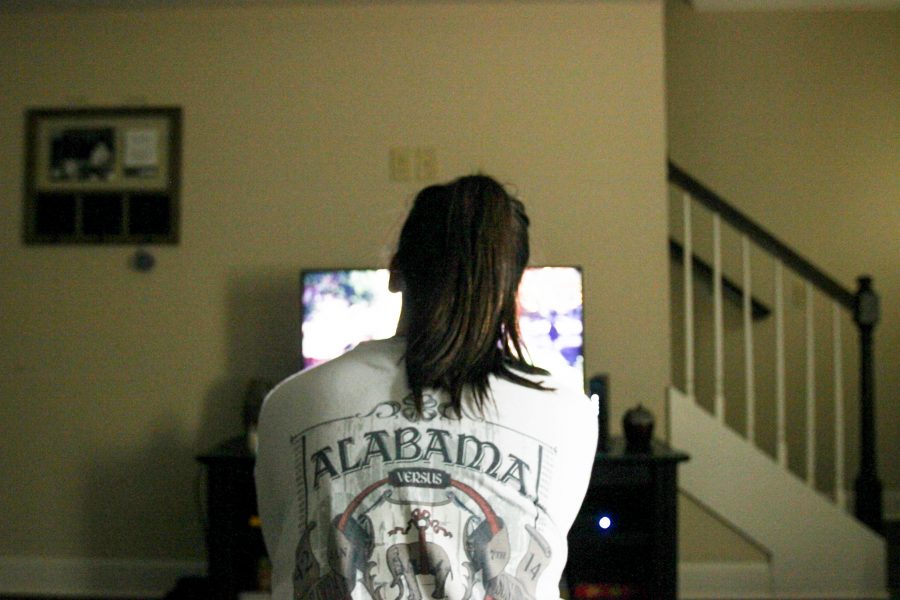It is fascinating: the constant desire and fraught feelings of people to get out of their own heads. There is a difference between being alone and being lonely. Learning how to be alone is something that is essential in becoming a healthy, active adult. When you came to college, you likely did it alone. When you get a job and have to move to a new city, you will also likely do it alone.
For a lot of young people in college, there seems to be a consensus of lonely and indignant feelings as evidenced by social media, there are many ways to eradicate feelings of loneliness and make use of one’s down time for the better. Social media is not a healthy way to do it.
Elliot Panek, a professor in the telecommunication and film department, is doing content analysis research of the app Yik Yak to determine what kind of things students are saying at different times of the day, which he will complete in December.
“Yik Yak is great because it allows students to reach out behind the veil of anonymity about issues they might not otherwise want to talk about in person,” Panek said. “Most of it is humor and an outlet for social support.”
Yik Yak allows students to bring all of their inner perspectives, whether it is about religion, politics or sports, to one location where people can relate or completely disagree. The app can be good in some aspects of social exercise, but there is another side of the coin, Panek said.
“Yik Yak has an idea of social comparison built into it, which can be a double-edged sword,” said Lee Keyes, director of the UA counseling center. “It can lend itself to bullying and passive aggressiveness in some instances as well as feelings of rejection.”
Yik Yak, and the anonymity it offers, is often used for people to voice their feelings about something they do not like about themselves or about how bored they are and how no one wants to hang out.
“There is an illusion of connectedness that social media establishes in that is has shown to impair personal relationship skills documented by research,” Keyes said. “Being able to connect to anybody behind a screen makes us less likely to affiliate with the immediate community around us, cultivating isolation within one’s own apartment or dorm room.”
Most of the “hot” yaks are jokes that make people laugh and controversial subjects, so socially desperate yaks rarely make it to the hot list, Keyes said. Young people who are using Yik Yak to establish meaningful social connections are often mocked, and Keyes said they need to understand that Yik Yak is not an effective outlet to meet people.
“We must learn to tolerate both being alone and being around others to become a mentally healthy adult,” Keyes said.
Keyes said when college students depend upon other people for their own self worth and adequateness, they set themselves up for disappointment when those expectations are not met.
“It is not unhealthy to seek social support in our ideals and personality, but when it is not achieved, one should not let it be able to get them down,” Keyes said.
What might cause some people to retract into themselves and conjure up lonely feelings might be a traumatic social experience, instance of non-acceptance, or feelings of being used, Keyes said. We all experience these feelings, and there is nothing wrong with them, but there are ways to get through it, establish hope, get rid of helpless and lonely feelings, and make it a learning experience.
Simply by doing something constructive will appease your mind, whether it’s cleaning your room, keeping a journal, reading a book, working on a hobby or even studying, Keyes said.
“Keeping an idle mind is the quickest way to not feel good about yourself,” Keyes said.
Anonymous late night conversations are fun, but students need to seek out like-minded individuals and reach out to the community besides sitting in their dorms scrolling through social media, Keyes said. There is a multitude of clubs and organizations for students to speak their mind and share with similar individuals.
“Three-fourths of stress for young people comes from relationships: starting them, building them and maintaining them,” Keyes said. “Besides academics, coming into the environment of adulthood with their own genuine identity and finding out who they are is students’ biggest challenge while attending college.”
Resources are available at the Counseling Center’s website at http://counseling.ua.edu/.









